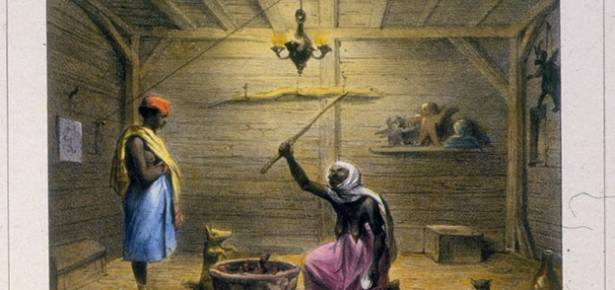
My recent monograph, The Smell of Slavery: Olfactory Racism and the Atlantic World, is a history of race construction and slave resistance throughout the Early Modern Era and into the Anglo-American nineteenth century. The discursive force of racist narratives exposed within the work are also constantly present in the dialogues of modern American politics. As moments of racial resistance continue in the streets of major cities, now boiling over into what conservatives are marking as a Marxist rebellion, race construction also accelerates as part of a reactionary response. The politics of division, the discourse manipulation that marks racism as a necessary reality, keeps those in power within their mansions, choosing to protect their egos, unable to understand that much of their prosperity was made due to racially organized economic, legal, and social structures.
Such propensity for discourse manipulation in modern politics is also emboldened each passing day of the coronavirus epidemic through a leadership that understands how to create multiple discourses to manipulate diverse publics into believing absurdist and scientifically unviable information. So, while The Smell of Slavery summarizes a history of how slaveholders developed a false consciousness that marked African bodies as stinking, it is also about how deeply discourse manipulation can alter the use of information within the public sphere, even so far as to change the very function of the human senses or to dismiss death as a necessity for keeping political control.
Slaveholders often contended that there were distinct differences between the races that could be perceived through the senses. Modern racists continue to use these socially constructed differences to further goals of racial suppression, white ascendance, and capitalist gain. The differences analyzed as false and socially constructed in The Smell of Slavery, notably the smell of distinct bodies as based on ethnicity, continue within modern social spheres. Birtherism, modern anti-immigrant language, police violence, and the intestinally upsetting languages found on Twitter, Facebook, and other more nefarious message boards continue to rely on socially constructed racism. Racist reactionaries understand that they must consistently divide and conquer the masses to prevent widescale resistance to the status quo. Often, the discursive associations they articulate become deeply embodied, whereby sights, smells, sounds, touches, and tastes of the other can create feelings of racial disgust.
When there is a greater threat to the wealthy, the rhetoric of racism increases. The whitelash that came after the Obama Era, driven by the decades old Southern Strategy introduced by Richard Nixon, has put in power a newly racist regime that currently has the most powerful weapon for discourse manipulation the world has yet seen. The excessive power of the Bully Pulpit, with the force of the internet, has exponentially increased to sow division at a blitzkrieg pace. This propagating of schism keeps the powerful in place, because the poor are manipulated to fight amongst themselves rather than challenge the considerable and growing wealth gap, the racial structures propping up the American economy, and policing policies that keep fear constant among the impoverished.
Latest Comments
Have your say!